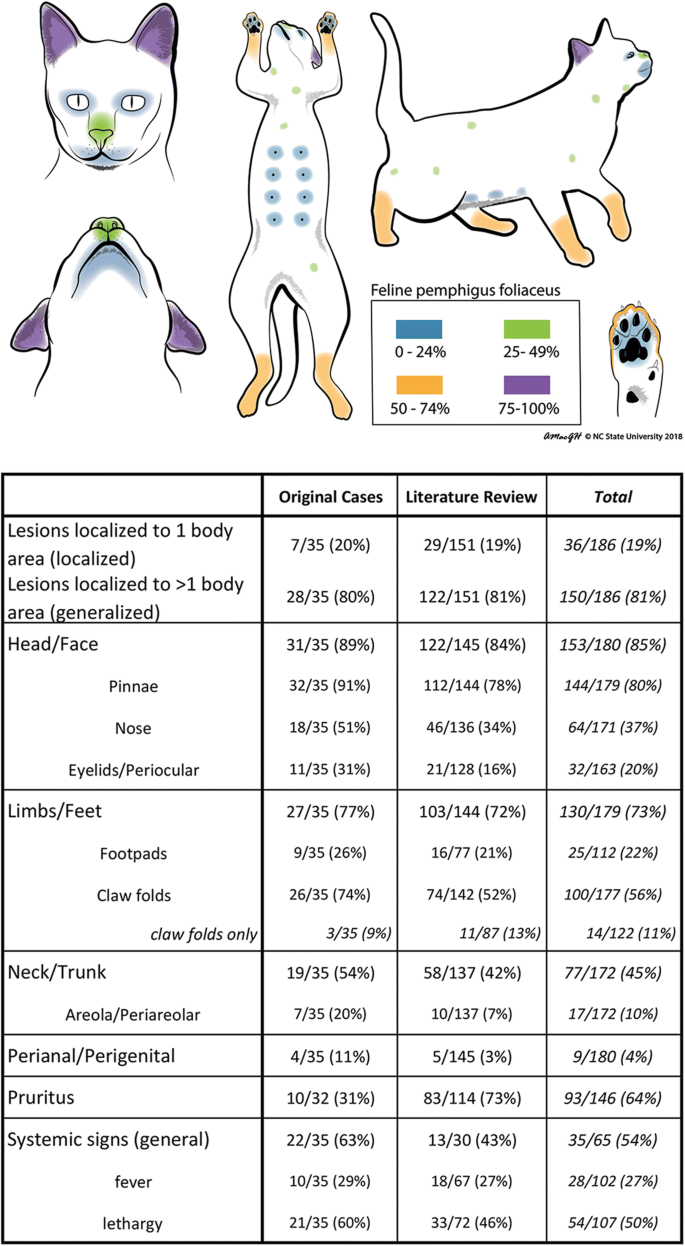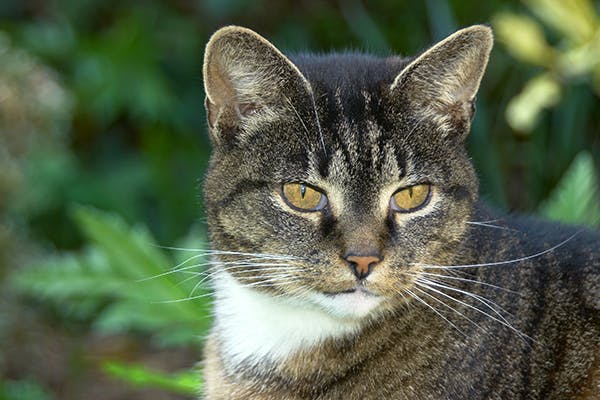
The immune system is exceedingly complex and decades of research have illuminated some of the ways it goes awry in autoimmune disease. As the name implies this bacterial infection is usually transmitted from cat to human via scratches although it can also be transmitted via bite wounds and when a cat licks the open wounds of a person.

As the name implies this bacterial infection is usually transmitted from cat to human via scratches although it can also be transmitted via bite wounds and when a cat licks the open wounds of a person.
Can cats have autoimmune disorders. Immune system disorders called immune-mediated disorders occur when the immune system is overactive or underactive. Disorders resulting from an underactive immune system called immunodeficiencies put animals at an increased risk for infections. Alternatively an overactive immune system can attack parts of its own body that it misidentifies as foreign causing what is known as an autoimmune disorder.
Cats that are allowed to roam outdoors male cats and older cats are more likely to become infected. This viral infection attacks the immune system leading to infections of the gums mouth digestive tract urinary tract and skin. Low red and white blood cell counts certain cancers or neurologic disease may also be seen.
Shortly after becoming infected cats may have a fever and enlargement of the lymph nodes glands. However these signs go away and the cat. There are three types of pemphigus that affect cats.
Pemphigus foliaceus pemphigus erythematosus and pemphigus vulgaris. In the disease pemphigus foliaceus the autoantibodies are deposited in the outermost layers of the epidermis and blisters form on otherwise healthy skin. Cat scratch disease CSD is caused by a bacterium called Bartonella henselae which may be carried in the saliva of infected cats and in the bodies of cat fleas.
As the name implies this bacterial infection is usually transmitted from cat to human via scratches although it can also be transmitted via bite wounds and when a cat licks the open wounds of a person. Among cats this bacterium is. Have your cat tested for the feline leukemia and feline immunodeficiency viruses.
Although these viruses do not spread to humans they affect the cats immune system. This puts your cat at risk of other infections that may be spread to humans. Your autoimmune disease didnt happen overnight.
Sure you may have a genetic predisposition towards autoimmunity. However we now know about epigenetics and that our genes are not static and they can be both turned on and turned off by environmental and lifestyle factors. As a functional medicine physician I work with my patients to find the root cause of their autoimmunity by.
Hypothyroidism can be induced by various diseases. An autoimmune cause accounts for approximately 90 of adult hypothyroidism mostly due to Hashimotos disease. The majority of Hashimoto patients are women aged between 20 and 60 years old and nearly 10 show overt hypothyroidism.
The doctors at the Veterinary Teaching Hospital finally determined the cat was suffering from primary immune-mediated hemolytic anemia. With full transparency Dr. Hull explained to Lucys family that felines with this disease typically have a poor chance of responding well to the immune suppressant medication that could save their life.
Feline immunodeficiency virus or cat FIV is a retrovirus infection first discovered in cats in the US. The virus is often referred to as cat HIV or cat AIDS because it has a similar effect on. The immune system is exceedingly complex and decades of research have illuminated some of the ways it goes awry in autoimmune disease.
But for most autoimmune illness including those mentioned above the true cause is unknown. The most common and quite general theory is that a person with a particular genetic background that makes them prone to immune system misfiring encounters an environmental trigger such as an infection or a toxin and that sets off autoimmune disease. Other causes of inflammation in the mouth include immune-mediated disease injuries chemicals metabolic disease burns tumors radiation therapy and infectious diseases.
Several viruses can cause inflammation of the mouth in cats including feline herpesvirus feline calicivirus feline leukemia virus and feline immunodeficiency virus. Signs vary widely with the cause and extent of inflammation. In stage I there is the acute HIV infection and the immune system is intact.
In this stage autoimmune diseases may develop. Stage II describes the quiescent period without overt manifestations of AIDS. However there is a declining CD4 count indicative of some immunosuppression.
Autoimmune diseases are not found. During stage III there is immunosuppression with a low CD4 count and the development of AIDS. CD8 T cells predominant and diseases.
Autoimmune diseases can also lead to osteoarthritis in cats. Though rare proliferative periosteal polyarthritis meaning arthritis at multiple sites has been found in cats. For some cats with severe arthritis treating them for a possible underlying autoimmune disease can reduce their symptoms or slow progression of the disease.
Cats infected with feline immunodeficiency virus FIV may not show symptoms until years after the initial infection occurred. Although the virus is slow-acting a cats immune system is severely weakened once the disease takes hold. This makes the cat susceptible to various secondary infections.
In some cases the peripheral nerves will continue to deteriorate and your cats disease will worsen. Cats that have been diagnosed with congenital or inherited forms of polyneuropathies should not be bred. Generally it is advisable to neuter a cat that is.